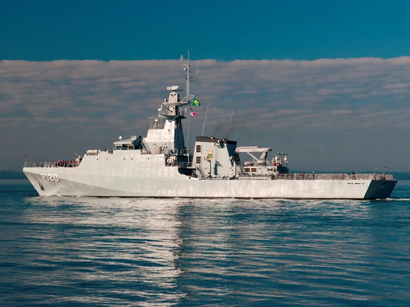The Islamic Revolution Guards Corps (IRGC) Navy's strategic naval deterrence dissuades the enemies of Iran from any military confrontation in the Persian Gulf, the IRGC Navy chief says, Press TV reported.
"With the materialization of the IRGC Navy's deterrence strategy, enemies... are heavily afraid of a military confrontation with us in the Persian Gulf and the Strait of Hormuz," Rear Admiral Ali Fadavi said on Saturday.
The commander added in the southern Bushehr province that Iran's naval deterrence measures up to the type and size of potential threats.
He said the enemies have understood that "any hostile action [against Iran] will be met with a regrettable and crushing response."
"Having taken a series of measures in hardware and software sectors, we have made the enemy believe that threatening national interests and security of the Islamic Republic of Iran will be ensued by threats [posed] to the national interests and security of [potential] aggressors," said Fadavi.
The Strait of Hormuz is a narrow waterway which connects the Persian Gulf on the west to the Sea of Oman.
Statistically, the waterway is one of the world's most important shipping lanes, with a daily flow of about 15 million barrels of oil.
In recent years, Iran has made great achievements in the defense sector and gained self-sufficiency in essential military hardware and defense systems.
The Islamic Republic has repeatedly assured other nations, especially its neighbors, that its military might poses no threat to other countries, insisting that its defense doctrine is based on deterrence.






